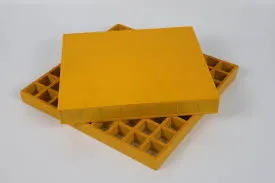
-
 Afrikaans
Afrikaans -
 Albanian
Albanian -
 Amharic
Amharic -
 Arabic
Arabic -
 Armenian
Armenian -
 Azerbaijani
Azerbaijani -
 Basque
Basque -
 Belarusian
Belarusian -
 Bengali
Bengali -
 Bosnian
Bosnian -
 Bulgarian
Bulgarian -
 Catalan
Catalan -
 Cebuano
Cebuano -
 China
China -
 China (Taiwan)
China (Taiwan) -
 Corsican
Corsican -
 Croatian
Croatian -
 Czech
Czech -
 Danish
Danish -
 Dutch
Dutch -
 English
English -
 Esperanto
Esperanto -
 Estonian
Estonian -
 Finnish
Finnish -
 French
French -
 Frisian
Frisian -
 Galician
Galician -
 Georgian
Georgian -
 German
German -
 Greek
Greek -
 Gujarati
Gujarati -
 Haitian Creole
Haitian Creole -
 hausa
hausa -
 hawaiian
hawaiian -
 Hebrew
Hebrew -
 Hindi
Hindi -
 Miao
Miao -
 Hungarian
Hungarian -
 Icelandic
Icelandic -
 igbo
igbo -
 Indonesian
Indonesian -
 irish
irish -
 Italian
Italian -
 Japanese
Japanese -
 Javanese
Javanese -
 Kannada
Kannada -
 kazakh
kazakh -
 Khmer
Khmer -
 Rwandese
Rwandese -
 Korean
Korean -
 Kurdish
Kurdish -
 Kyrgyz
Kyrgyz -
 Lao
Lao -
 Latin
Latin -
 Latvian
Latvian -
 Lithuanian
Lithuanian -
 Luxembourgish
Luxembourgish -
 Macedonian
Macedonian -
 Malgashi
Malgashi -
 Malay
Malay -
 Malayalam
Malayalam -
 Maltese
Maltese -
 Maori
Maori -
 Marathi
Marathi -
 Mongolian
Mongolian -
 Myanmar
Myanmar -
 Nepali
Nepali -
 Norwegian
Norwegian -
 Norwegian
Norwegian -
 Occitan
Occitan -
 Pashto
Pashto -
 Persian
Persian -
 Polish
Polish -
 Portuguese
Portuguese -
 Punjabi
Punjabi -
 Romanian
Romanian -
 Russian
Russian -
 Samoan
Samoan -
 Scottish Gaelic
Scottish Gaelic -
 Serbian
Serbian -
 Sesotho
Sesotho -
 Shona
Shona -
 Sindhi
Sindhi -
 Sinhala
Sinhala -
 Slovak
Slovak -
 Slovenian
Slovenian -
 Somali
Somali -
 Spanish
Spanish -
 Sundanese
Sundanese -
 Swahili
Swahili -
 Swedish
Swedish -
 Tagalog
Tagalog -
 Tajik
Tajik -
 Tamil
Tamil -
 Tatar
Tatar -
 Telugu
Telugu -
 Thai
Thai -
 Turkish
Turkish -
 Turkmen
Turkmen -
 Ukrainian
Ukrainian -
 Urdu
Urdu -
 Uighur
Uighur -
 Uzbek
Uzbek -
 Vietnamese
Vietnamese -
 Welsh
Welsh -
 Bantu
Bantu -
 Yiddish
Yiddish -
 Yoruba
Yoruba -
 Zulu
Zulu
Innovative Automotive Design Using Lightweight Fiberglass for Enhanced Performance and Durability
The Rise of Fiberglass Cars A Revolution in Automotive Design
In the ever-evolving automotive industry, innovation continues to shape how vehicles are designed and manufactured. Among the myriad materials used in car production, fiberglass has emerged as a game-changer due to its unique properties and versatility. This article explores the significance of fiberglass in the automotive world, highlighting its advantages, historical context, and impact on future car designs.
Fiberglass, a composite material made from finely woven glass fibers embedded in a resin matrix, offers a lightweight yet durable alternative to traditional materials like steel and aluminum. One of the main advantages of fiberglass is its exceptional strength-to-weight ratio, which allows manufacturers to produce vehicles that are not only lighter but also more fuel-efficient. This characteristic has gained particular importance as consumers seek eco-friendly options that reduce their carbon footprint.
The Rise of Fiberglass Cars A Revolution in Automotive Design
In addition to lightweight properties, fiberglass offers excellent resistance to corrosion, which is a critical factor for the longevity of automobiles. Unlike traditional metals that can succumb to rust over time, fiberglass provides a longer-lasting solution, reducing maintenance costs for consumers. This durability has made fiberglass particularly appealing for manufacturers of niche vehicles, such as custom-bodied cars, recreational vehicles, and even boats.
fiberglass car

Moreover, fiberglass is extremely flexible when it comes to design. This adaptability allows for more intricate shapes and styles, which can attract consumers looking for unique and personalized vehicles. The customization potential of fiberglass is particularly evident in the realm of classic cars and hot rods, where enthusiasts often seek to enhance performance and aesthetics without the limitations posed by metal bodies.
The automotive industry's increasing focus on sustainability further underscores the relevance of fiberglass. As electric and hybrid vehicles become more prevalent, manufacturers are seeking lightweight solutions to maximize battery efficiency and range. Fiberglass plays a crucial role in reducing the overall weight of electric vehicles, contributing to longer driving distances and improved performance.
As technological advancements continue to develop, the future of fiberglass cars appears bright. Innovations such as resin transfer molding (RTM) and vacuum-assisted resin infusion processes promise even greater efficiencies in production, minimizing waste and enhancing the material's structural properties. These advancements may lead to reduced production costs, making fiberglass more accessible to a wider range of consumers.
In conclusion, fiberglass has undoubtedly revolutionized the automotive landscape, offering a combination of lightweight durability, design flexibility, and sustainability that is hard to match with traditional materials. Its journey from the iconic Corvette to modern electric vehicles illustrates the profound impact of this material on automotive design. As industry trends lean toward lighter, more efficient, and environmentally friendly vehicles, fiberglass is poised to play an increasingly pivotal role in shaping the future of the car industry. As we embrace these advancements, the days of heavy, inefficient metal cars may soon be behind us, giving way to a new era defined by innovation and sustainability.









